Student Counseling Services provides a wide variety of free, confidential services to ISU students. Schedule an initial appointment- either virtual or in person- based upon your preference. You will complete electronic forms prior to your appointment and then meet with one of our clinicians to discuss your unique situation. During that appointment, the clinician will recommend the service/s which best support your concerns. Recommendations may include one or more of the following options.
Counseling
Counseling Options
Staff at SCS are trained to assist with a wide variety of presenting concerns such as: anxiety, depression, self-acceptance, relationship challenges, career exploration, grief, procrastination, family of origin concerns, life transitions, disordered eating/eating disorders, negative coping behaviors, as well as sports psychology for Iowa State students. Services to address these concerns may be provided by the following:
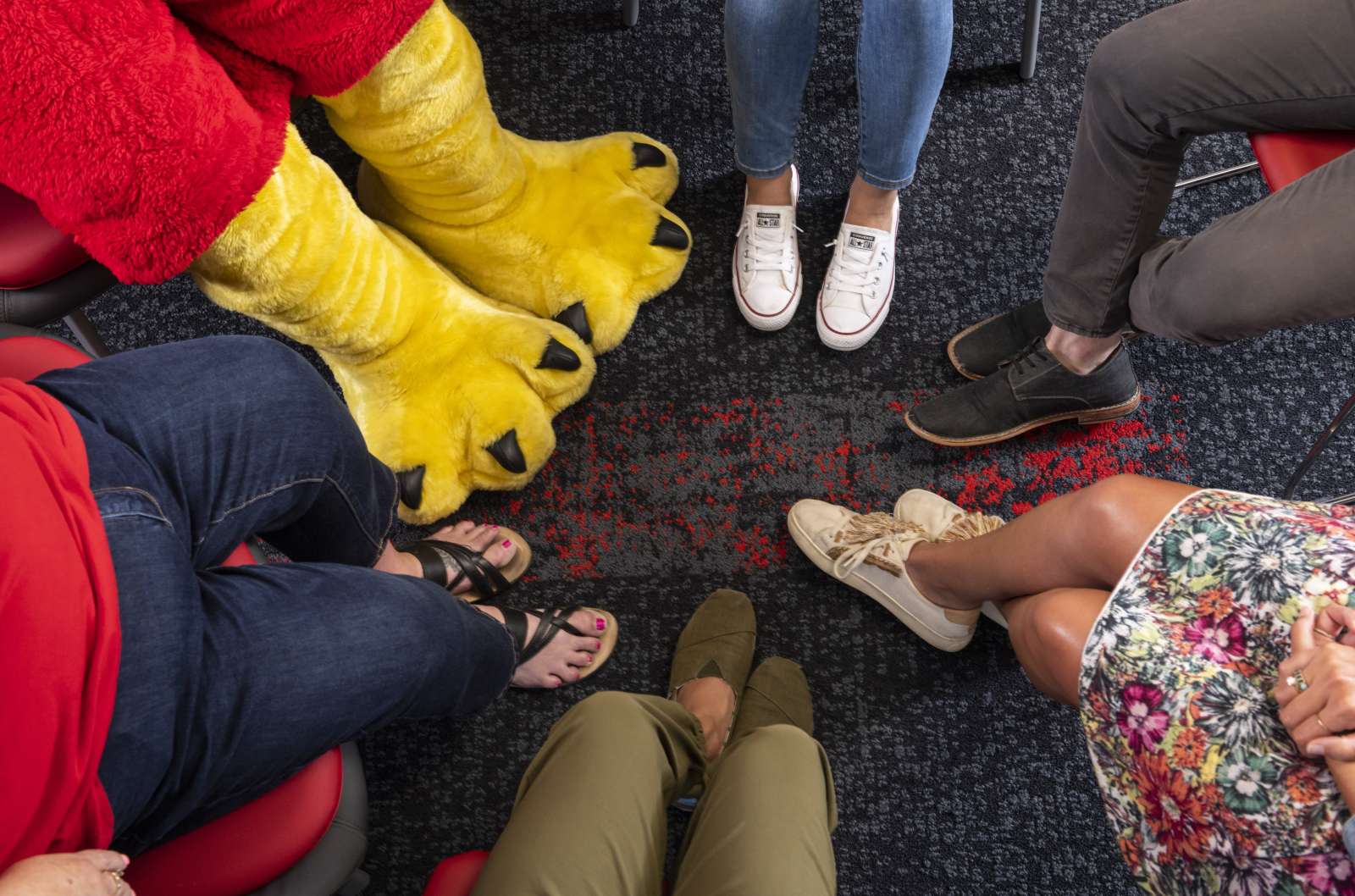
Workshops
Workshops are engaging and interactive sessions designed to increase coping skills and mental wellbeing. Workshops are three weeks long and run continuously throughout the semester.
MOTIVATION & PROCRASTINATION: Three-week, skills workshop in which students will learn to identify factors that contribute to procrastination and low motivation as well as strategies to effectively address these challenges. Wednesdays 1:00 pm - 2:00 pm
CREATE YOUR OWN CALM: Three-week, skill-based workshop focused on developing strategies for addressing anxiety, excessive worry, and feeling overwhelmed. Thursdays 1:00 pm - 2:00 pm
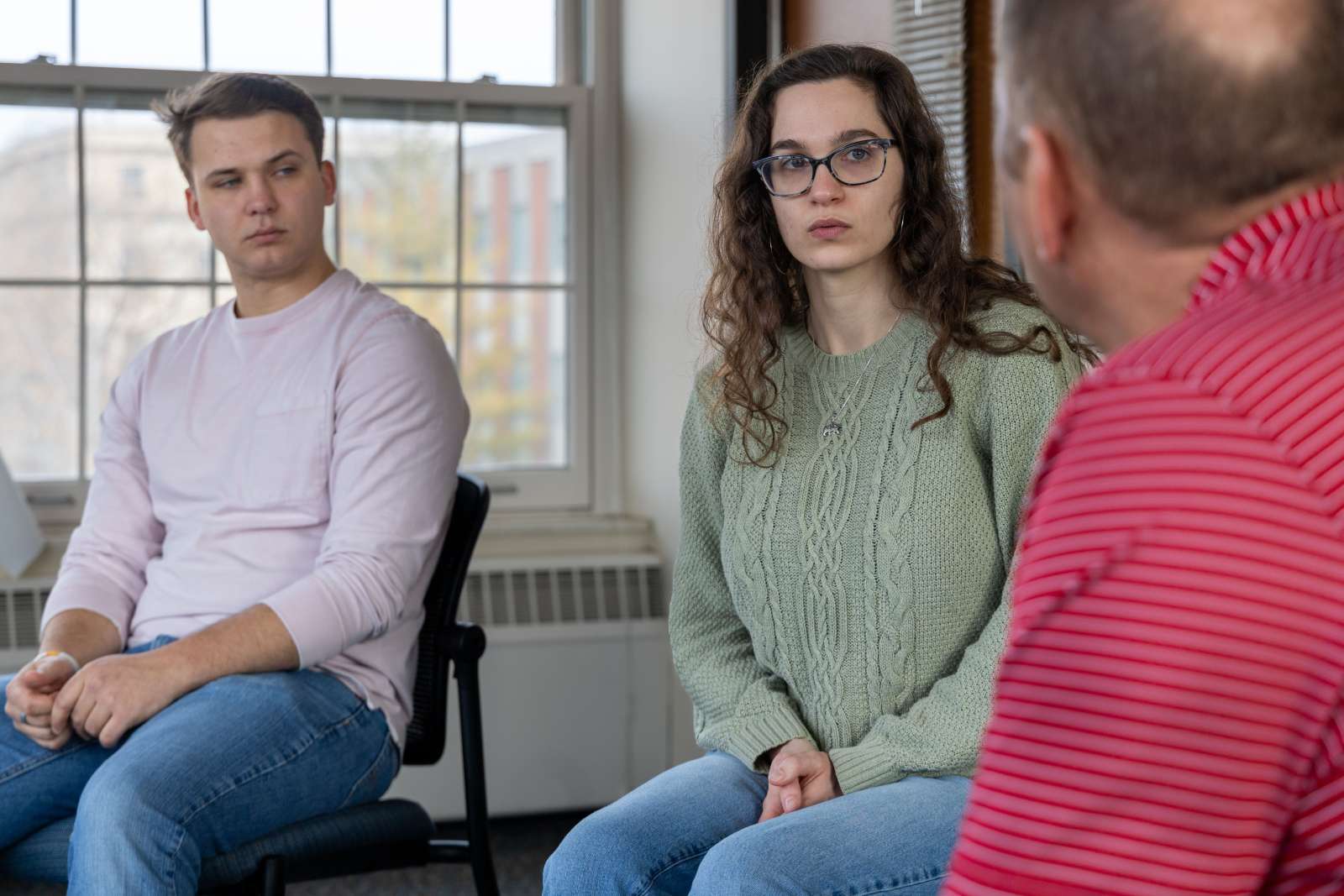
Group Counseling
Group Counseling options are offered each semester for students working to improve their mental health. Group sessions involve sharing your experiences and listening to others' challenges. Group counseling provides a supportive environment to discuss concerns and work toward your personal goals. Group therapy is a powerful way of connecting students with others who are also navigating challenging experiences. Groups meet weekly for 90 minutes.
All students are welcome to express interest in any group.

Groups and Workshops
UNDERSTANDING SELF AND OTHERS GROUP: General process-oriented groups for students dealing with a variety of concerns (depression, anxiety, stress, relationship struggles, etc). Members explore patterns of how they relate to themselves and others to help change current behaviors and develop greater insight and acceptance. Mondays 3:00−4:30 pm, Tuesdays 3:00−4:30 pm, Wednesdays 1:00−2:30 pm
UNDERSTANDING SELF AND OTHERS GROUP - ANXIETY THEME: This group will be similar to the description of the Understanding Self and Others group, with a specific focus on anxiety. Tuesdays 11:00 am −12:30 pm
UNDERSTANDING SELF AND OTHERS GROUP - GRADUATE/NON-TRADITIONAL STUDENTS: This group will be similar to the description of the Understanding Self and Others group, but intended for graduate and nontraditional students. Fridays 11:00 am −12:30 pm
UNDERSTANDING SELF AND OTHERS GROUP – ROMANTIC RELATIONSHIPS THEME: This group will be similar to the description of the Understanding Self and Others group, with a specific focus on romantic relationships. Tuesdays 10:00−11:30 am
UNDERSTANDING SELF AND OTHERS GROUP – LGBTQIA+: This group will be similar to the description of the Understanding Self and Others group, with a specific focus on topics related to sexual orientation, gender identity, and identity exploration. Thursdays 3:00−4:30 pm
ACT GROUP: The Acceptance and Commitment Therapy (ACT) Group is for students who want to encounter depression and anxiety differently as well as pursue a full and meaningful life. ACT helps people relate differently to their anxious feelings, depressed moods, worrying mind, self-defeating behaviors and/or anything causing problems. Members explore patterns how they related to themselves and others to help change current behaviors and develop greater insight and acceptance. Thursdays 3:00-4:30 pm
MOOD, FOOD AND YOU GROUP: This group is for students navigating relationships with food, exercise, and/or body image. Group time will include skill building, hands-on activities, and time to explore and discuss members’ concerns while receiving encouragement to move toward their identified goals. Thursdays 11:00 am −12:30 pm
Group therapy is often the treatment of choice for people who experience troubled relationships, loneliness, depression, anxiety, grief/loss, and low self-esteem. People who participate in groups have the opportunity to benefit from sharing personal experiences, giving and receiving support/constructive feedback, and experimenting with new interpersonal behaviors. In order for group to work, a safe environment must be created and expectations for members and co-leaders must be understood by the participants. The best way to create a safe environment for personal growth is for you to understand and to agree to these guidelines.
What’s said in the group stays in group
Feeling safe in group is very important to a successful group experience. Confidentiality is the shared responsibility of all group members and leaders. Please keep discussions that occur in group confidential and keep names and identities of other group members confidential. You are free to disclose to people that you are a member of a group and that you attend group, but to protect confidentiality, please do not discuss person-specific details of other group members to persons outside the group.
Weekly attendance is expected
Group members are expected to make a commitment to attend group the entire term. Members also agree to come on time every week. If you are running late or have an emergency/illness that prohibits you from coming to group, we ask that you call or email one of the co-leaders or let the front desk know. If you know ahead of time that you will miss a later group session, we ask that you share the date of your absence with the group beforehand. Individual and group sessions are provided at no charge but failure to attend group without cancelling will result in a $25 charge. If you are unable to attend group consistently, you may be asked to discontinue group.
Group members do not socialize outside of group
Outside relationships between members can disrupt group cohesion and the therapeutic process. As long as group members are in group, relationships outside of group should be avoided. This includes texting and social media. If you do have contact with someone outside of group (e.g. see someone on campus), we ask that you share that contact with the group at the next meeting.
Safety of group members is important
If you experience thoughts of self-harm, suicide, or harm to others, it is expected that you will bring this up in group and/or make separate contact with an SCS counselor to discuss your thoughts. If you are in crisis, you commit to seek out the help that is required to keep you and others safe. Possible actions include coming to SCS for a walk-in crisis appointment (M-F 8:00-5:00), calling the National Crisis Line at 800-273-8255, calling 911 or going to the emergency room.
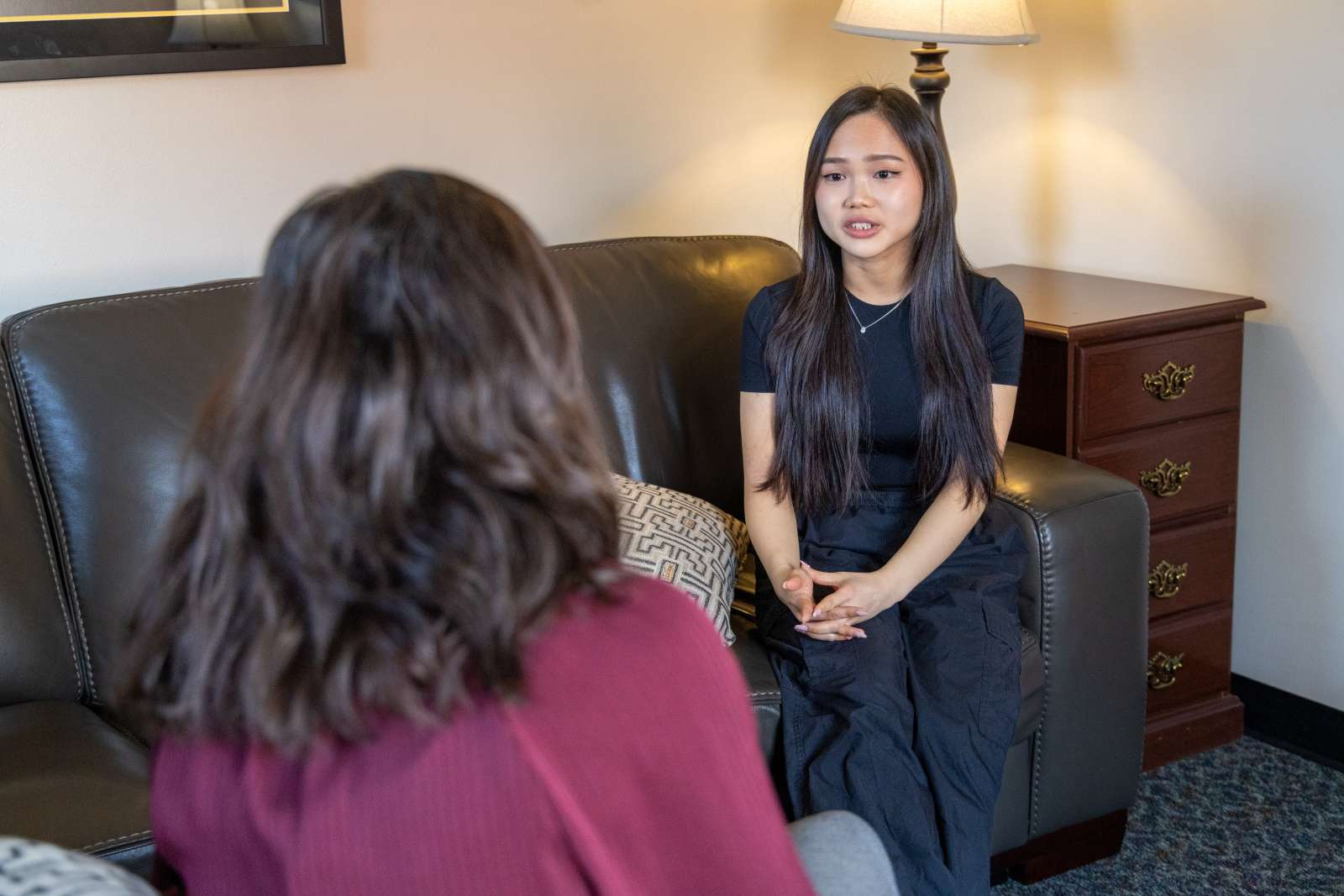
Individual Counseling
Individual Counseling is traditional one-on-one counseling offered through Student Counseling Services. Students schedule an initial appointment, where they will speak with one of our counselors about their individual situation. Sessions are typically every other week. Student Counseling provides short-term therapy, with students typically attending 4-8 sessions.
There is no charge for individual appointments with a counselor. If psychological testing is indicated, there may be a small charge associated with the cost of testing. There is also a charge for missed appointments without calling ahead of time.

Individual Counseling
Get Started
To get started with any of the above options, simply give Student Counseling Services a call.
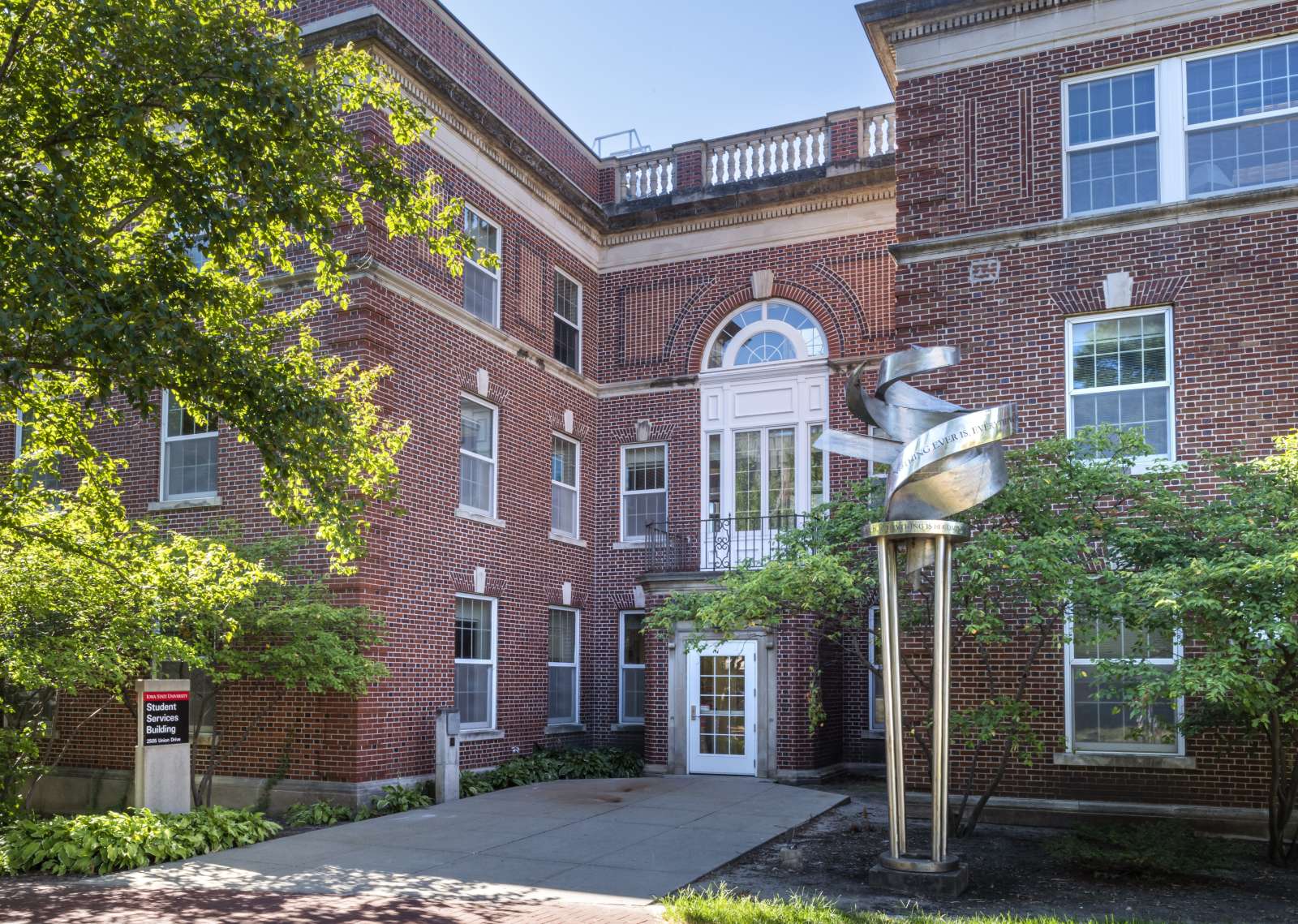
Hours and Location
Student Counseling Services is located on the third floor of the Student Services Building.
Counseling Services is open 8:00 a.m. - 5:00 p.m., Monday-Friday during fall and spring semesters, but closed during all university holidays.
During breaks and summer, hours shift to 7:30 a.m. - 4:00 p.m.
Although we provide individual therapy for many common presenting concerns, we cannot accommodate some therapeutic needs such as primary substance abuse, neuropsychological testing, court mandated therapy/assessment, or any level of severity not appropriate for every other week outpatient therapy. The Student Counseling Services Clinical Care Coordinator is skilled at connecting students with appropriate referrals.
Community Referrals
Student Counseling Services operates within a short-term counseling framework in order to use resources most effectively and meet the significant student need. Generally, students who are referred to community resources include those whose needs would be best met by longer-term services or those whose needs require a specific expertise not available at SCS. Students sometimes choose a community referral for a variety of reasons including the desire to access therapy services more quickly than the SCS can provide following the initial appointment. When a student is referred to a community provider, the SCS Clinical Care Coordinator may assist the student to determine an appropriate provider and make the initial appointment. In other cases, the Clinical Care Coordinator may follow-up with students who have been referred to other services helping to assure that recommended care is being received.
Student Counseling Services maintains this Community Provider List as a helpful resource for you. It includes information about local providers, their specialties, and information about what insurance they accept.
On Your Own Options
While some people prefer an in-person counseling experience, others would rather interact with resources independently. The following resources are free to Iowa State students are are available 24/7, 365 days a year.
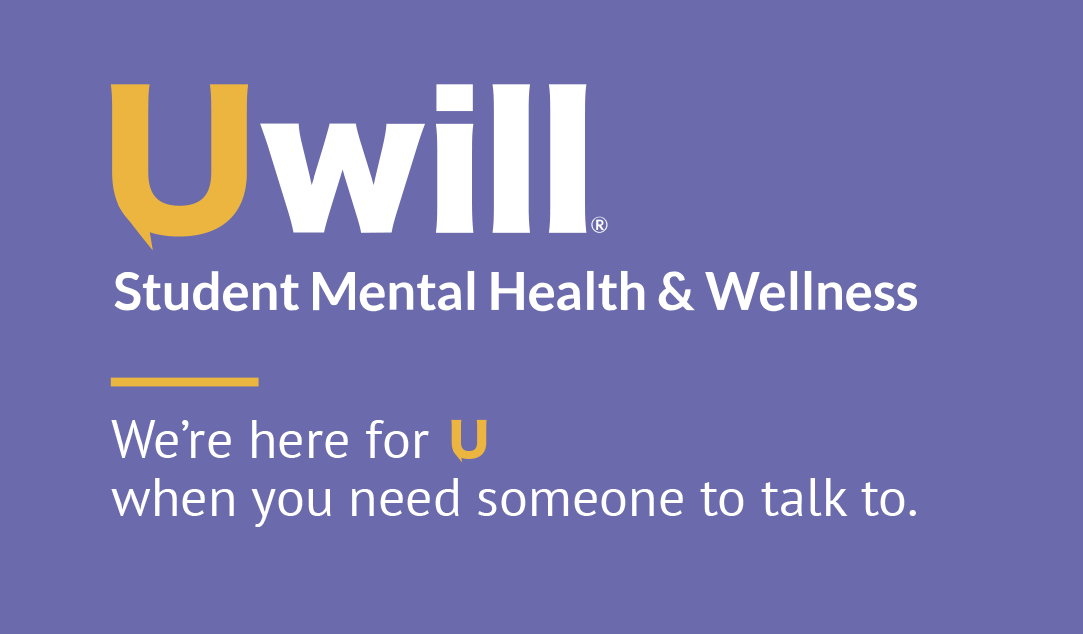
Teletherapy
Iowa State University Student Counseling Services provides free Virtual and In-person counseling services. An alternative option for free teletherapy services is offered through Iowa State’s partnership with Uwill.
This includes up to 8 ongoing individual therapy sessions per year with the same provider available 24/7, 365 days per year and completely FREE to students. If after completing sessions you are interested in additional support, Uwill or Student Counseling Services can help connect you to resources.
Students experiencing crisis can be connected immediately with a counselor via teletherapy.
Register in minutes using your school email at http://app.uwill.com/
Uwill offers students free immediate access to teletherapy, a direct crisis connection, and wellness programming through its easy to use online platform.
To schedule teletherapy:
- Create a profile with Uwill
- Choose a therapist based on your preferences including availability, concern, gender, language, ethnicity.
- Choose a time that fits your schedule with day, night and weekend availability.
If you need any assistance, you can refer to the Uwill FAQ, Student User Guide, or reach out directly to Uwill at support@uwill.com.

Recharge Room
Located in Student Services Building Room 2071, the Recharge Room provides biofeedback, light therapy, and a wide variety of mental health relaxation resources. The room is open during all business hours. Simply scan the QR code located inside the room to check-in and follow the instructions provided.

Self-Help App (TAO)
Therapy Assistance Online (TAO) is a phone app that gives users free access to thousands of self-help resources across a broad array of topics. The app includes features to journal and track different aspects of your wellbeing.